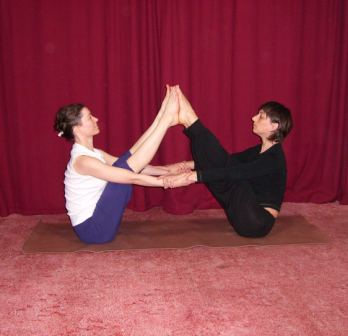Because you, and the world, deserve our full presence, our full attention, our full passion, and our fully engaged awareness.
~Lee Harrington
The much-delayed part 2 to my first Figuring out Consent post!
I’m so excited about the July 16th Slutwalk in St. Louis. I won’t get to be there myself, but it has me thinking about the role that sex positive organizations have in addressing the issue of rape. For me, one of them involves actively thinking about sexual consent. Sometimes consent is obvious, or seems to be obvious, but it might be worthwhile to check in with ourselves and with our partners to make sure that the ‘obvious’ means what we think it does
Real consent, ‘deep’ consent (not just legal consent) requires consciousness
(not just a lack of unconsciousness). We’ve got to know what we want, know what we want to give. We have to find out these things from our partners. Let’s share our intentions, then check in with ourselves again. Then check in with our partners again.
This can be verbal. if you don’t know your partners well, or if there has been some discord int he relationship, it’s a good idea to be verbal and explicit in your inquiries, as it’s hard to gague non-verbal communication with new partners. Verbal communication might also be a good idea with a long-term partner, when trying something new.
Some people balk at the thought of verbal communication during sex, fearing that it will ruin the mood, or turn into a power struggle. But it can be a way to share desire and build anticipation. Clarisse Thorn writes about an experience that she had, where she and her partner were in the same headspace and were reading each other’s cues well, and even then, it was important to share preferences verbally and that this kind of sharing helped to develop their connection.
Still, an important part of consent is being open to the ‘no’ – “there’s a fine line between sharing and pressure. One must be careful when bringing up one’s own preferences and desires — which isn’t to say one shouldn’t bring them up! Merely that it’s important to recognize that these are difficult topics, and when we discuss them with people we love or admire, there’s lots of potential for accidental anxious pressure”. The ‘anxious pressure’ that Clarisse mentions in another post can push things towards the coercion end of the consent spectrum, and can negatively impact a relationship. So yes, it helps to check in verbally, but if you’ve been contributing to an unwanted power imbalance or creating a sense of obligation, someone may still feel coerced, or even feel coerced by the way we verbalize our desires and check on those of our partners. Again, that’s not necessarily rape, but ,not-raping’ our partners isn’t what we’re after as sex-positive lovers, is it?
The way I’m thinking about it lately has me returning to the ideas of intention, attention and awareness. For me, the times in which I played a big part in sex being less than a ‘HELL YES!’ were times where I wasn’t being honest with myself and others about my intentions, so I ignored my partner’s clues. Looking back, this was likely also true, when I’ve been on the other side of that equation, though I haven’t asked anyone about this. After all, is it really possible to miss consent, or not sense its absence if you’re attending to your partner?
The idea of having sex with someone without attending to them may seem strange, but we are handed so many cultural scripts about sex and what we should want, and what should happen, that it can be hard to be in tune with what we really want, let alone with the sometimes-subtle cues that our partners are giving.

Non-verbal communication is also important, even if it's not as clear. For example, I have no clue what these women are saying.
In an interview with The Consensual Project, sociologist Michael Kimmel emphasizes mindfulness and presence during sex: “I think that the essence of consent as you’re describing it and as I understand it, is communication and negotiation. And the essence of communication and negotiation is to be present – to show up.” Paying attention to ourselves and our partners, staying aware of the changing dynamics of sex — this can be hard work, but it’s only way to keep things at the ‘Hell Yes’ end of things (or during a long work week at the ‘ok we really need to to do this for ourselves and the relationship’ end of things).
So what does all this zen-flavored talk about consent have to do with preventing rape? Rape has many aspects. One involves coercing someone to engage in a sexual act. Studies suggest that relatively few people do this. But the few people that do this are born of a culture that encourages people to act according to scripts regarding sex. These scripts involve fantasies of entitlement and claims of sexual obligation. These scripts separate people from what they and their partners want in a given moment. Because we are offered so few tools for thinking about clearing giving consent, and being conscientious in checking for it, far too many people have become used to having sex that they feel less than good about. I think that this represents a low-level trauma that we inflict on ourselves and others and which keeps us from dealing with rape, especially acquaintance rape, as effectively as we could. A “rigorous ethic of consent,” is one way to remake our culture, which all to often silences and ignores rape.

Thanks for the pingback! 🙂 but FYI my last name is Thorn not Thorne!
Fixed! Thanks for the heads-up!